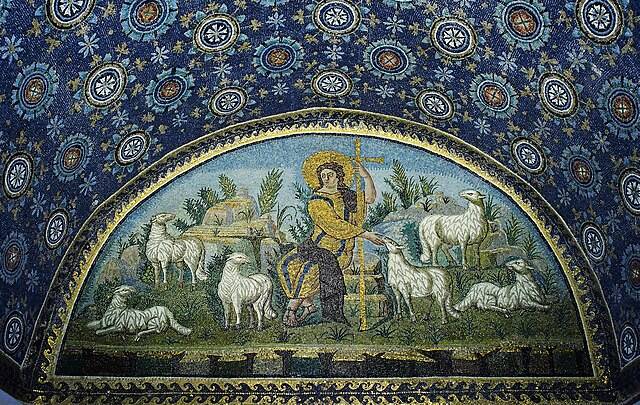At the end of “The Waste Land,” T. S. Eliot writes, “These fragments I have shored against my ruins.”
This line has meant a lot to me, has been a kind of life rule, because I misremembered it as “fragments I have stored against my ruin.” Life is precarious and unpredictable, and anyone could, like Job, lose everything in the blink of an eye. It is wise to have things you cannot lose.
Memories of things done well, of craft and vocation well-pursued, of forgivenesses offered unwillingly and apparently pointlessly, of temptations resisted and confessions made when they weren’t resisted, of loyalty to friends under attack, of compromises refused, the list goes on. At least those memories balance, in a way, the times I failed to do each of them.
I thought of the fragments I was storing as things I had done. I only recently realized they were also things I had loved.
I misremembered the line as “fragments I have stored against my ruin.”
Some years ago, my mother went into hospice, her mind almost gone. She had attended church as a child, like most children her age. She had stopped going when she left home, started again a few years after her children were born, and stopped again when she was older, after her pastor displeased her. She preferred traveling around the countryside, eating in little restaurants and shopping in little shops. Yet, my mother never stopped reading her Bible, especially the Psalms.
When she went into the hospice, I flew up to help my sister with all the complications of end-of-life care. My mother was always restless, fretful and had trouble sleeping even with the drugs she was getting. My conversation could only ever partly divert her attention. I had always been able to amuse her, but I could not anymore.
Stories of her grandchildren, which I was sure would please her, did not. She had forgotten that she had grandchildren. Stories about my dad, who had died a few years before, and whom she did remember, did not please her either, because she could not remember their life together. My mother recognized my sister and me as her daughter and son, but was not very clear about what we did.
I had always been able to amuse my mother, but I could not anymore.
Her oldest friend visited, and that kept her happy for a while. I urged her friend, as she was leaving, to come back as often as she could. After she left the room, my mother turned to me and said, “Who was that?” I told her it was Sue, her best friend for maybe 40 years. “That’s not her,” she said decisively, and started fretting again. “Tell her not to come back,” she added.
After a day or two, when she was more fretful than usual, tossing back and forth on the bed and complaining about being where she was, I finally thought of reading the Psalms to her. I began with the 23rd Psalm, because it’s the 23rd Psalm. The moment I said, “The Lord is my shepherd,” she stopped tossing, stopped complaining, and laid there quietly with a look I can only call contemplative. It was like driving through a thunderstorm that in an instant turned to blue skies.
The moment I said, “The Lord is my shepherd,” she stopped tossing, stopped complaining.
Finishing the 23rd Psalm, I started reading Psalm 1 and kept reading the Psalms in order. About an hour or so later, I had to stop. As I set the Bible on the table by her bed, she started fretting and complaining again. I picked it up again, and instantly, she was calm and happy.
This was the pattern over the last couple of weeks of her life. The Psalms always calmed her. Nothing else did. I only regret that on the day we knew she was likely to die, my sister and I did not think to read the Psalms to her while we kept vigil around her bed. We were too distracted, too conscious that she would be gone any minute. We were so intent on trying to be there for her, that we were not completely there for her. She fretted until she died.
My mother loved the Psalms, and had lived with them for most of her adult life. The love survived her disengagement with any kind of public Christianity. It survived the loss of almost all her memories.They consoled her when nothing else would. The Psalms were a fragment my mother had stored against her ruin.








